- Introduced by Government
- Rs 2 lakhs sum insured
- Affordable premiums

Himanshu is a content marketer with 2 years of experience in the life insurance sector. His motto is to make life insurance topics simple and easy to understand yet one level deeper for our readers.
Reviewed By:

Sharan Gurve has spent over 9 years in the insurance and finance industries to gather end-to-end knowledge in health and term insurance. His in-house skill development programs and interactive workshops have worked wonders in our B2C domain.
Updated on Aug 13, 2024 3 min read
Difference between PMSBY and PMJJBY
The Government of India introduces various schemes and policies at affordable premiums. Two such schemes introduced are PMSBY and PMJJBY. These schemes are majorly introduced for people with low annual incomes. Such people can't afford the expensive premiums of plans private companies offer. In this article, we will discuss both schemes in detail.
What is PMSBY (Pradhan Mantri Suraksha Bima Yojana)?
Pradhan Mantri Suraksha Bima Yojana was introduced by the Government of India in 2015. This scheme provides insurance to individuals against death and permanent disability. A coverage of Rs 2 lakhs is offered in case of death/ permanent disability due to accident or Rs 1 lakh in case of partial permanent disability. The coverage is offered to Indian citizens between 18 to 70 years of age against an annual premium of Rs 20. The premium is deducted from your savings account in any of the banks. This scheme is offered in partnership with various public and private insurance companies by the government.
What is PMJJBY (Pradhan Mantri Jeevan Jyoti Bima Yojana)?
Pradhan Mantri Jeevan Jyoti Bima Yojana was introduced by the Government of India in 2015. This scheme offers life cover of Rs 2 lakhs to beneficiaries in case of a policyholder's death due to any reason. The coverage is offered to Indian citizens between 18 to 50 years of age against an annual premium of Rs 330. LIC (Life Insurance Corporation of India), HDFC Life, PNB Metlife, Tata AIA, IndiaFirst offer this scheme. The premium is deducted from your savings account. An individual can opt for one policy at a time from any savings account even if they have multiple bank accounts.
A GST of 18% applies to the premium of any of the policies you choose.
Difference between PMJJBY and PMSBY
| Parameters | PMSBY | PMJJBY |
| Policy Type | It is an accidental insurance scheme as coverage is offered in case of an accident. | It is a life insurance scheme that provides coverage against deaths due to any reason. |
| Premium charged | A premium of Rs 20 is charged annually. | A premium of Rs 330 is charged annually. |
| Maximum age | The maximum age to get this scheme is 70 years. | The maximum age to avail of this scheme is 50 years. |
| Maximum Premium Payment Age | The premiums can be paid till the age of 70. | The premiums can be paid till the age of 50. However, one can extend the same till 55 if regular premiums are being paid. |
| Coverage offered | Rs 2 lakhs- In case of death due to accident. Rs 2 lakhs- In case of total permanent disability. Rs 1 lakhs- In case of partial permanent disability. |
A coverage of Rs 2 lakhs is provided in case of unfortunate demise of the policyholder. |
Similarities between PMJJBY and PMSBY
| Parameters | Similarities |
| Type of Policy | Both these policies are launched by the Government of India. |
| Minimum Entry Age | The minimum age to avail of these policies is 18 years. |
| Tax Benefits | Tax benefits under the Income Tax Act can be availed under both schemes. |
| Premium Payment | The premium amount gets automatically deducted from your savings account. |
| Eligibility | Can be purchased by Indian citizens. |
| Maximum coverage | The maximum coverage an individual can avail of is Rs 2 lakhs. |
| Coverage Tenure | In a particular year, the coverage is valid from 1 June to 31 May. |
| Policy Lapse | The policy will not lapse even if you are not able to pay the premiums. |
Conclusion
It is necessary to have an insurance policy as life is uncertain. Both the schemes offered by the government are ideal for people who can't afford high premiums. This article provides you with complete information about PMSBY (Pradhan Mantri Suraksha Bima Yojana) and PMJJBY (Pradhan Mantri Jeevan Jyoti Bima Yojana). You can enroll in any of the schemes that fit your financial needs.
Life Insurance Companies
Share your Valuable Feedback
0
Rated by 0 customers
Was the Information Helpful?
Select Your Rating
We would like to hear from you
Let us know about your experience or any feedback that might help us serve you better in future.


Written By: Himanshu Kumar
Himanshu is a seasoned content writer specializing in keeping readers engaged with the insurance industry, term and life insurance developments, etc. With an experience of 2 years in insurance and HR tech, Himanshu simplifies the insurance information and it is completely visible in his content pieces. He believes in making the content understandable to any common man.
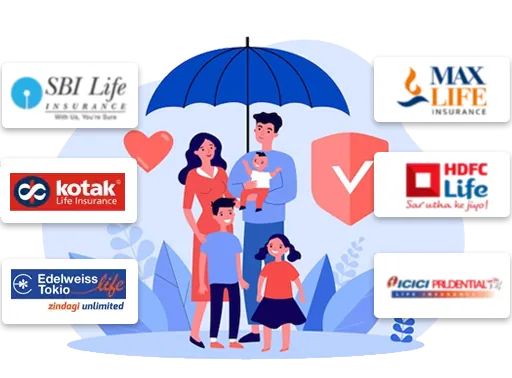






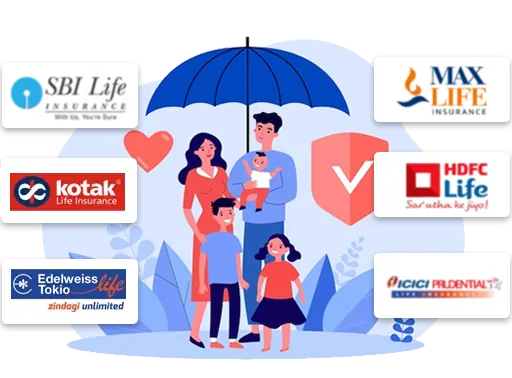
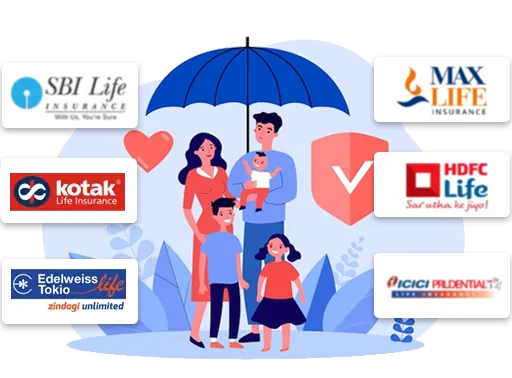
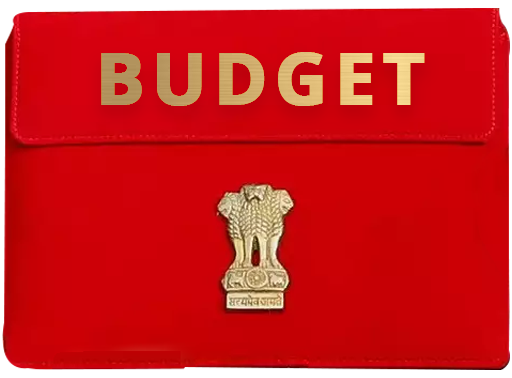
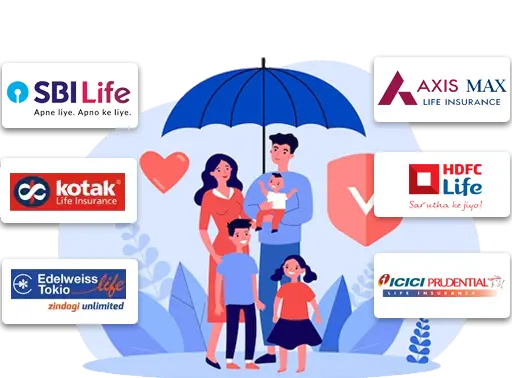
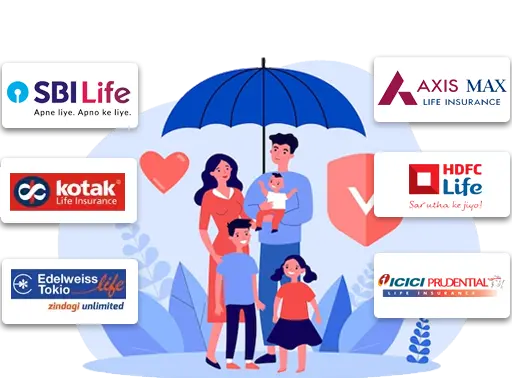
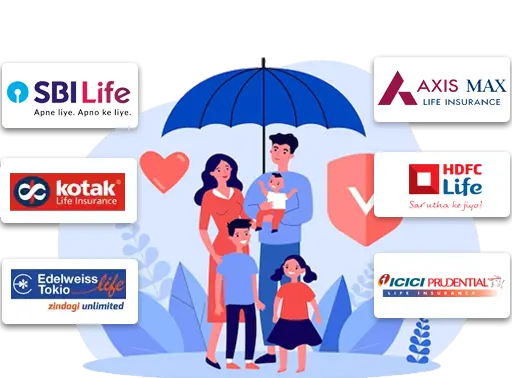
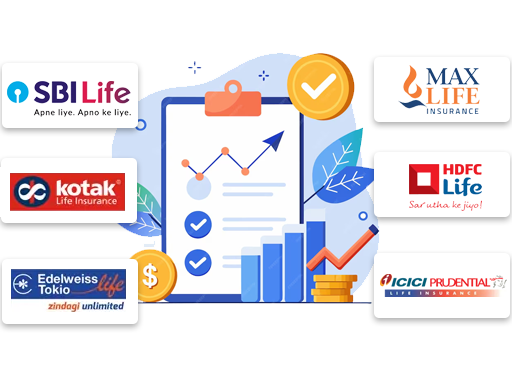
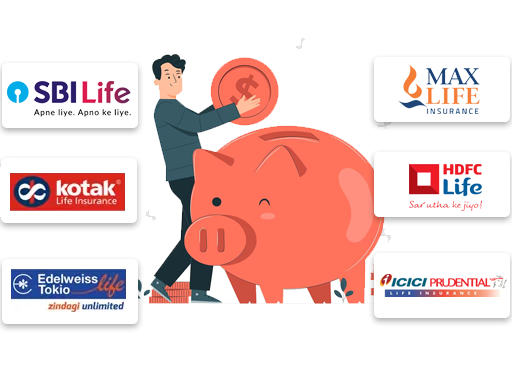
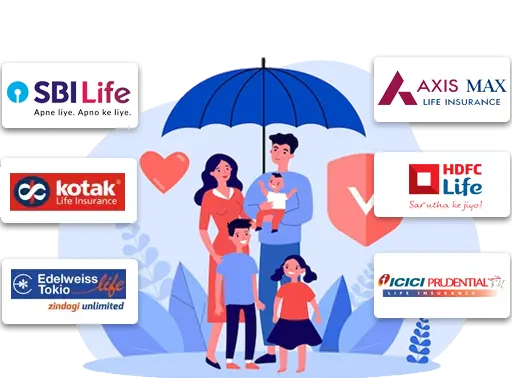





Do you have any thoughts you’d like to share?